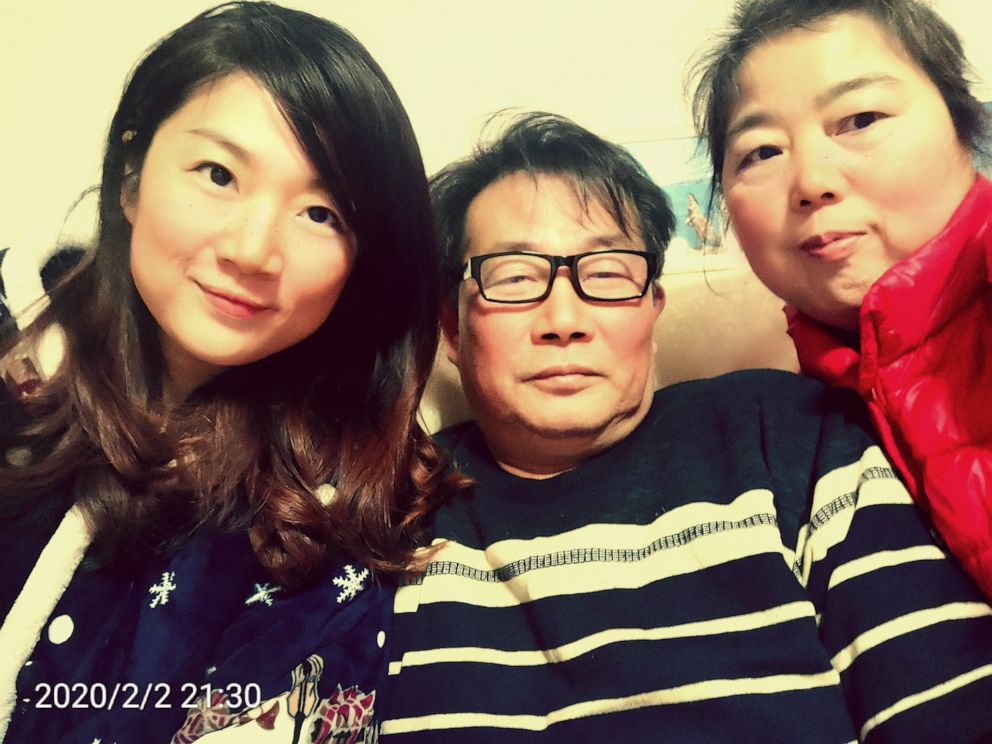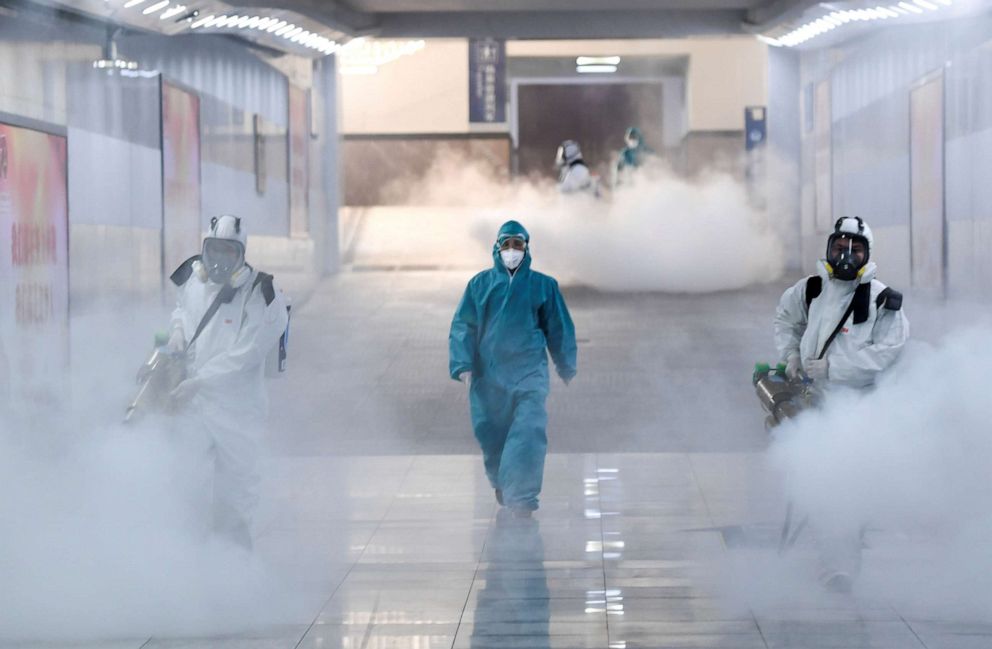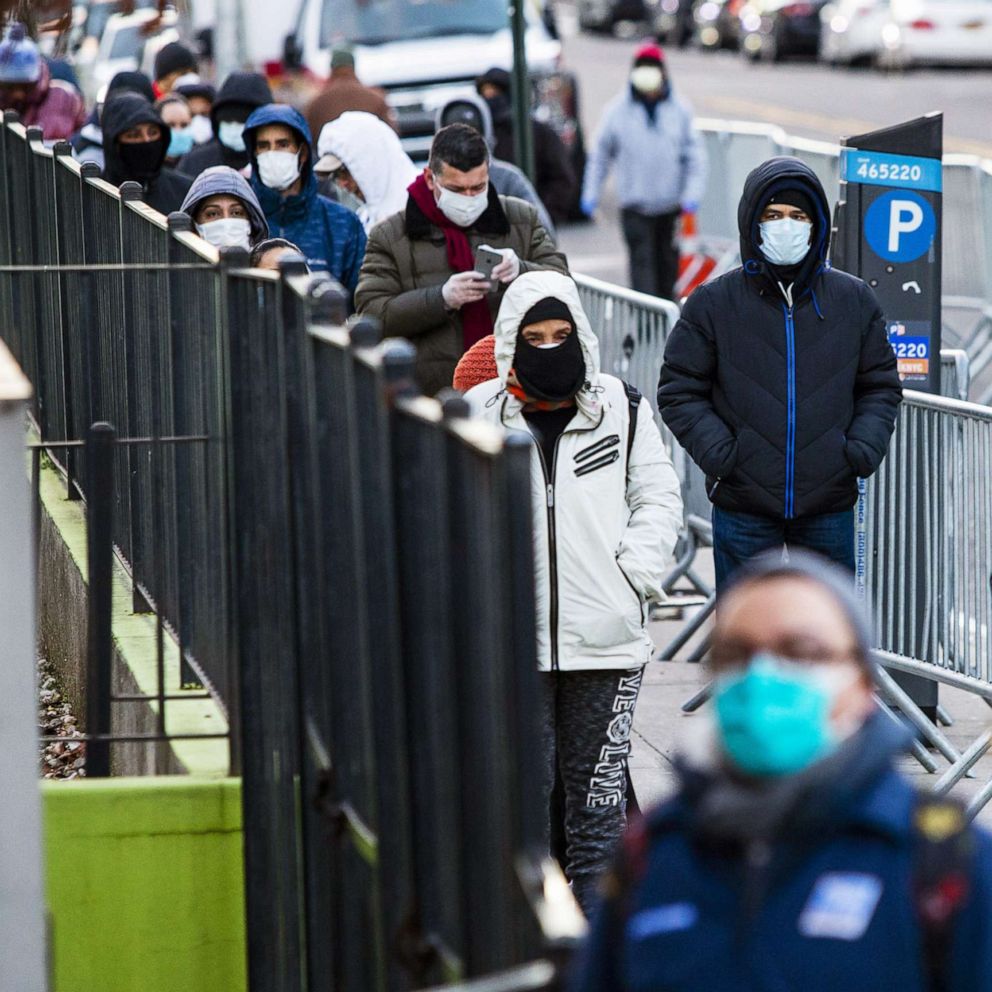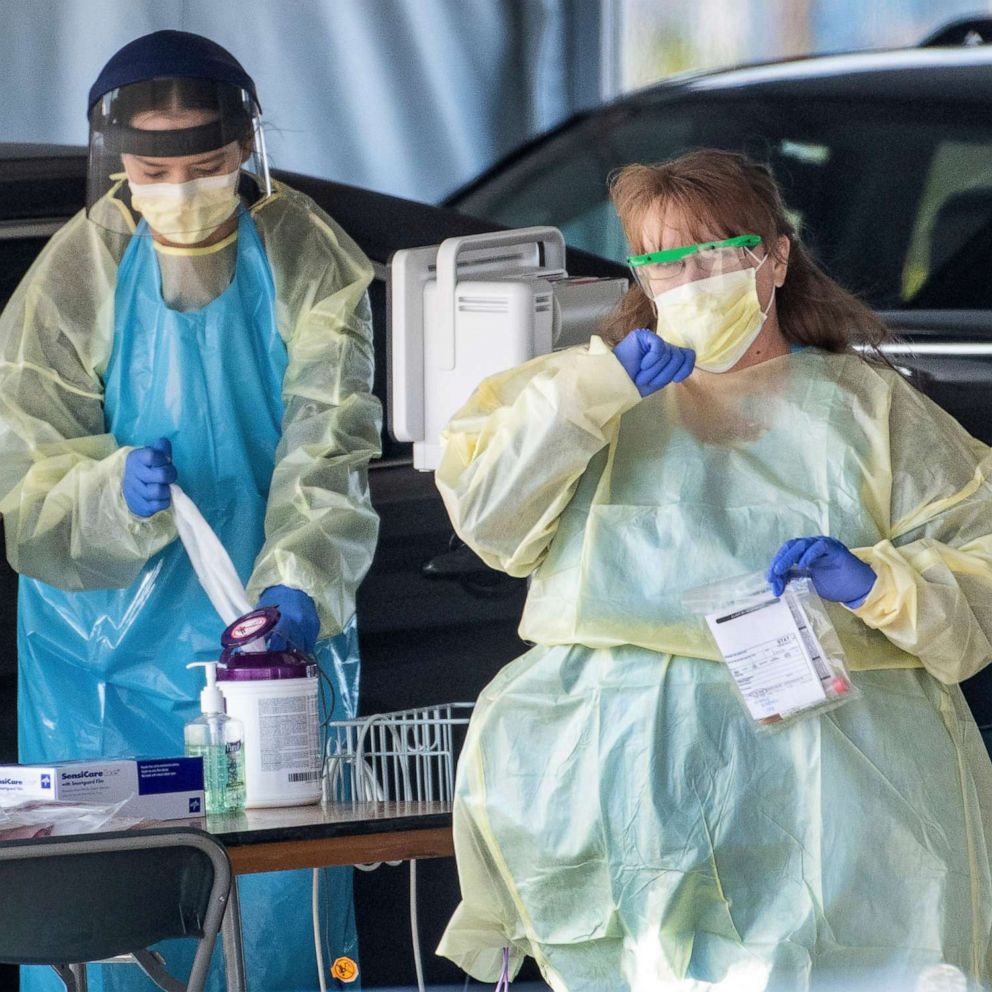Nurse in China describes coronavirus self-quarantine with parents, advises those staying home to 'be optimistic'
Kate Shi, an IVF nurse in China, spent three weeks in her parents' apartment.
While the number of novel coronavirus cases continues to rise in the United States, China has begun to regain a sense of normalcy as the number of cases in the country has dropped dramatically in recent days. One nurse living in China spoke to ABC News about her experience dealing with the pandemic and offered some advice to people in the U.S.
Kate Shi, 34, an in vitro fertilization nurse that lives in Qinhuangdao, China, told ABC News she spent "almost three weeks" under a self-quarantine with her parents at their home in Changsha, which is roughly 340 miles from the novel coronavirus, COVID-19, epicenter in Wuhan.

"I was visiting them for the Chinese holiday and then I found out that I couldn't leave to return to work," Shi said.
She added that "the biggest challenge at that time was to make them comply" with public safety measures by staying home.
"Our city didn't lock down like Wuhan, but it was strongly encouraged to stay inside and not leave," Shi said.
Like many Americans in dense cities staying inside with their parents, family or roommates, Shi said there she had a mental shift in her attitude to make it work.
Tune into ABC at 1 p.m. ET and ABC News Live at 4 p.m. ET every weekday for special coverage of the novel coronavirus with the full ABC News team, including the latest news, context and analysis.
"My parents' apartment was quite small and, I think at first, what I had to do was to adjust my mindset," she explained. "Having to stay at home does not mean that I lost my freedom or control over my life. It actually means I consciously make a decision to protect myself and my family from this virus."
Shi said that for her, it helped to maintain her normal routine and that she'd wake up at her normal work hours. Once the family adjusted to being at home together, they embraced the opportunity to be so close to each other, she said.
"I interacted a lot with my parents and took advantage of the time I had with them," she said. "We had a casual hour after dinner where we'd play cards. There was a lot of laughter. It was actually quite nice."

Shi said that she had to self-isolate for 14 days after her train ride back to Qinhuangdao and that she worked remotely until her time was up and the clinic could open up again for patients.
Now, Shi said that "most of the businesses are starting to open like normal. People are coming to work like they did before all of this started."
She explained, however, that not all restaurants have resumed business and that those that have been delivering food to people have not yet allowed diners inside.
"I wouldn't say we're back to normal yet, but we're well on our way," she said,
Shi also gave some advice to others who are living through lockdowns. "Be optimistic," she said. "But take it seriously."
"Take precautions," she added. "Find things that matter to you and that can make you productive during the day, and appreciate your time."






